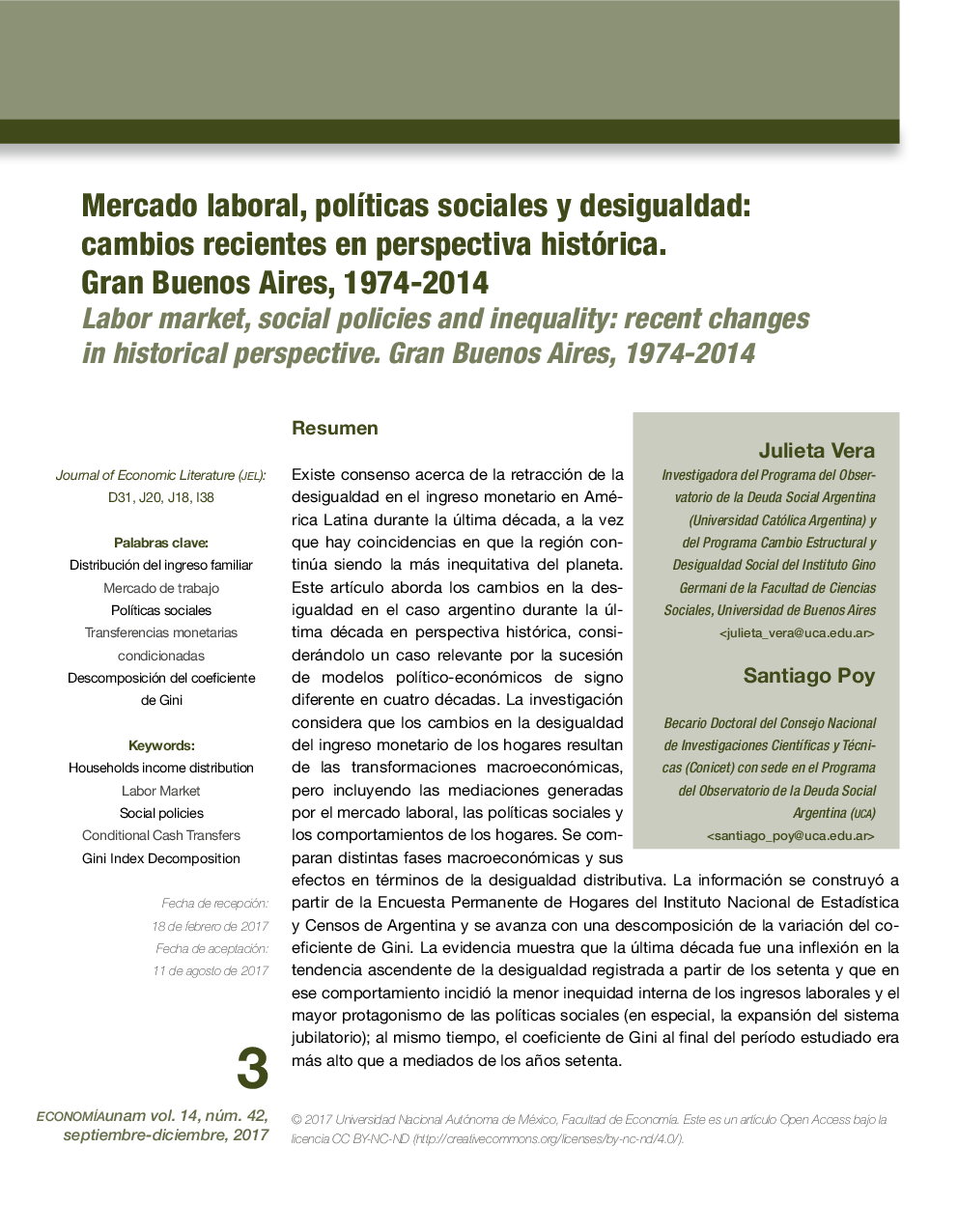| Article ID | Journal | Published Year | Pages | File Type |
|---|---|---|---|---|
| 7345748 | Economía UNAM | 2017 | 21 Pages |
Abstract
There is a wide consensus about the path of inequality reduction followed by Latin America during the last decade, as well as is recognized that the region is still the world's most unequal region. This paper tackles changes in households' income inequality in Argentina during the last decade from a historical perspective, considering Argentinean case relevant because different kinds of political and economical models took place during the last four decades. The paper considers that changes recorded in households' income inequality depends on macro-economic changes, but introducing an analysis of changes in labor markets, social policies and households' behaviors. Several periods are compared in terms of their effects on households' income inequality. Data come from Permanent Household Survey (eph) of the National Institute of Statistics, and a Gini index decomposition model is applied. Evidence show that the last decade was a turning point in the growing trend of households' income inequality recorded since the seventies and that this performance was due to a less inequality of labor incomes and the growing relevance of social policies (specially, the extension of pensions system); whilst the Gini index at the end of the period was higher than in the mid-seventies.
Related Topics
Social Sciences and Humanities
Economics, Econometrics and Finance
Economics and Econometrics
Authors
Julieta Vera, Santiago Poy,
